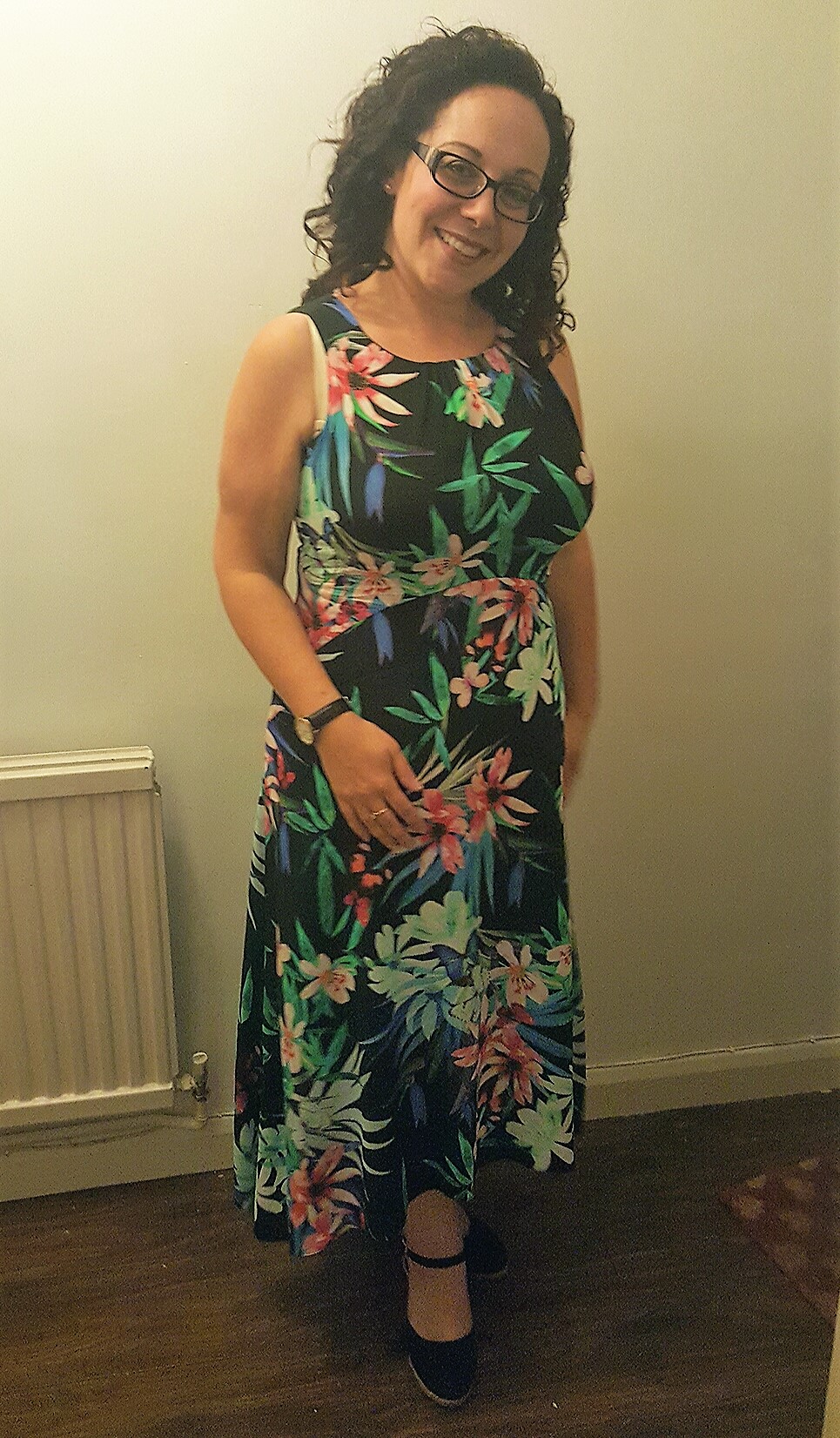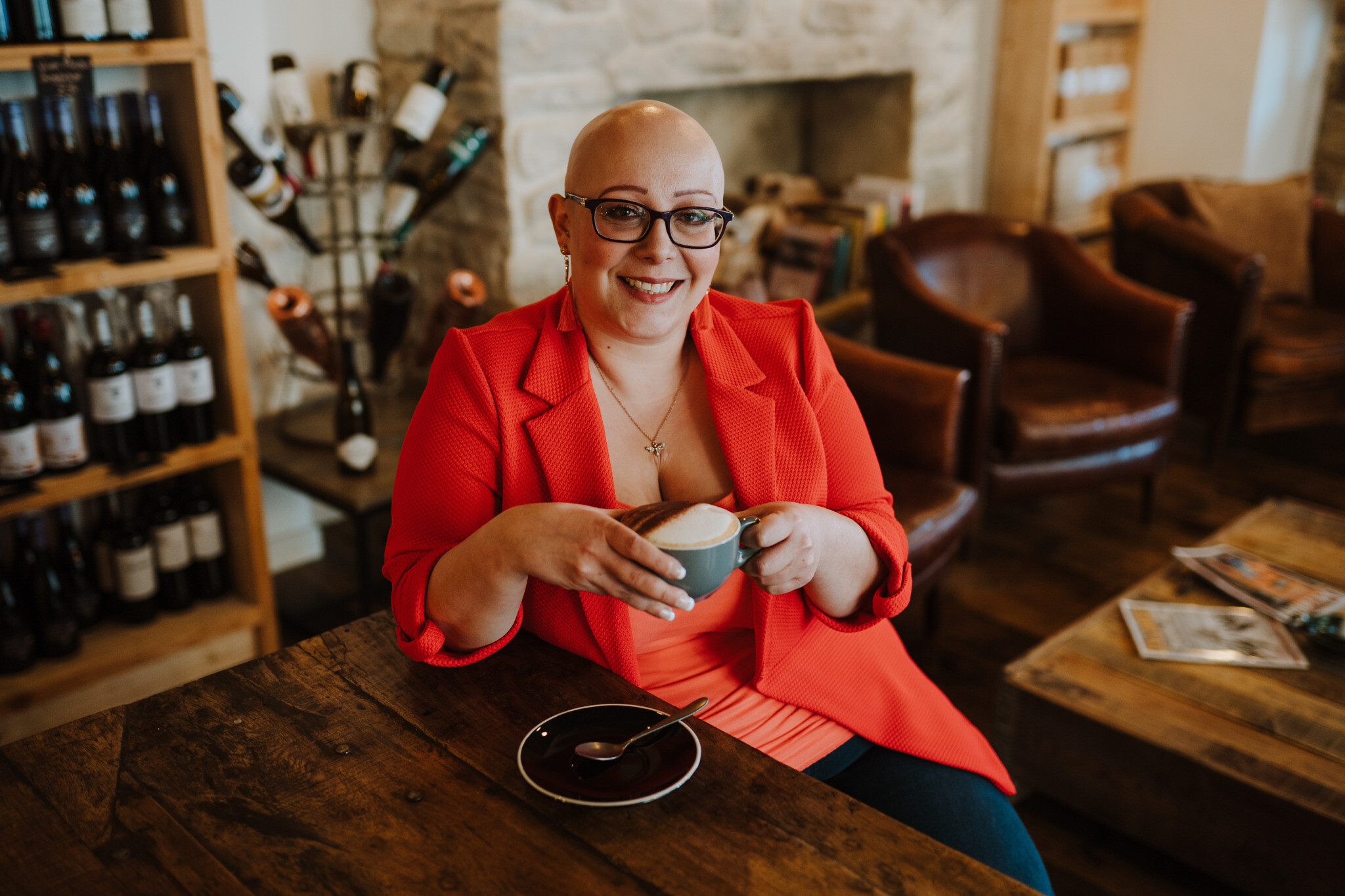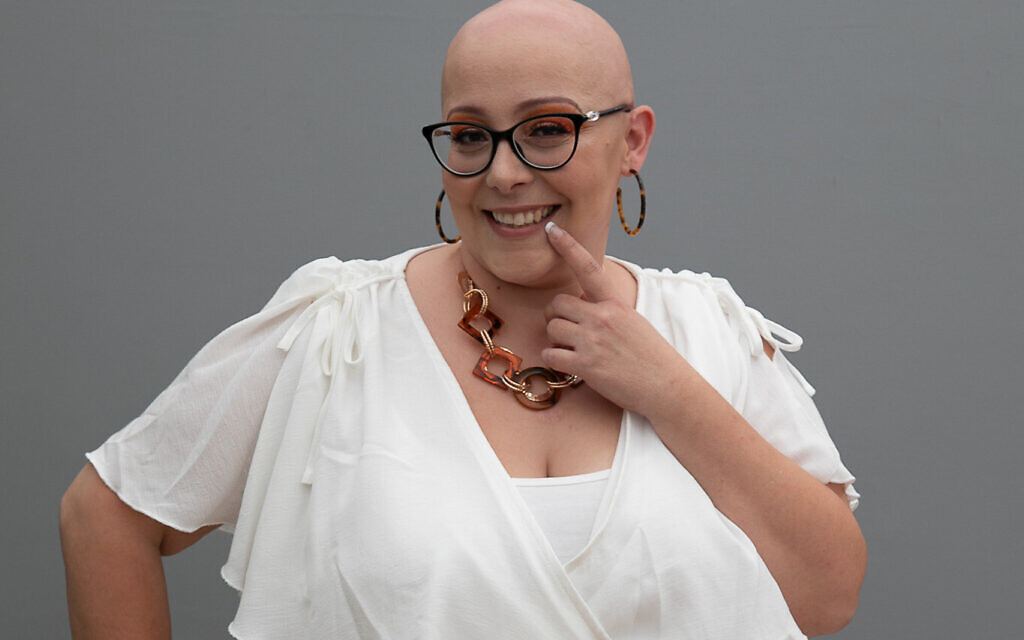I lost my hair and found myself
Confidence is often tied in with how a person looks, but Lizi Jackson-Barrett says losing her hair was the making of her
Lizi Jackson-Barrett was distraught when she discovered an egg-shaped bald patch while getting ready for her 40th birthday party. She was recently married and had lost five stone to feel she was her best self. Within six weeks, though, she was devasted to lose all her remaining hair. So how is it that she now describes herself as “short, fat and bald” yet says she is the happiest she has ever been?
Lizi, 44, who details her journey through self-loathing to self-acceptance and confidence in her book, How to Feel Beautiful, is a coach and motivational speaker and helps women come to accept themselves, improving their self-esteem.
Her book – and indeed her work – is aimed at any woman who has ever looked in the mirror and found herself lacking. “The overarching aim is to help women see that you don’t need to be wishing for a different appearance in order to achieve some kind of happiness that is eluding you. And that, actually, you can find that happiness, self-love and contentment without changing a single thing about yourself.”
Get The Jewish News Daily Edition by email and never miss our top stories Free Sign Up
Lizi, who lives in Romford, rails against the general consensus of beauty. “It’s got nothing to do with how you look and everything to do with how you look at yourself,” she emphasises. “Beauty can be found in every single person and every single shape and size of body. We’ve got this received wisdom that beauty has to fit within these really narrow parameters of shape and size. And I completely reject that.”
Lizi did try to squeeze herself into those very parameters she now eschews. The year before her wedding, she existed on shakes and soups, which took her from a size 22 to a size 12-14. Yet while she looked great and the compliments came thick and fast, she wasn’t happy.

“I now very deliberately introduce myself to people by saying, ‘I’m short, fat and bald, and I feel beautiful’, because I know that is the kind of antithesis of what we’re told a beautiful woman looks like. The truth is that I feel more confident and better about my appearance than I ever have done.”
Lizi wasn’t happy even at her thinnest because she felt – like most of the women she’s ever met – that she needed to continue to change herself. “Women are told, from the youngest age, that our mission is to keep striving for perfection and that no matter what we do to our bodies, there’s always something else to be aiming for.
“Once I lost my hair, I gave myself permission to stop doing that, to stop that cycle of looking for the next way to change myself to try to be more beautiful.”
Lizi had been dreading her hair falling out. Her father had lost his hair from alopecia in his early 20s and she had feared it could be hereditary.
She felt “terror, just absolute pure fear” when her hand touched her naked scalp for the first time. “It was this fear of the shame that comes with it, the idea that if people notice it, what are they going to say about me? And how am I going to hide it?”
Doctors prescribed high doses of steroids, which caused her to regain her weight, but it did not save her hair. “For a few months, I was in really quite a dark place and I cried constantly,” admits Lizi, who is a member of South West Essex and Settlement Reform Synagogue.
“There was this belief that no matter what I did, I would never be beautiful. Until this thought came into my head: that if I’m never going to be the thing I’ve been trying to be my whole life, it means I’m allowed to stop trying.
“And that was the moment where everything shifted – my entire perception of the world, of myself and my place in it.”
When she first lost her hair, her husband told her he didn’t see her any differently because she was the woman he had always loved and found beautiful.
“He said my beauty was never dependent on my body shape or anything else and it came from something much deeper and more important.”

Lizi believes her alopecia has ultimately had a positive impact on her and her family. Her twins, who are nearly 13, see her speaking positively about herself in spite of not fitting the ‘normal’ ideals of beauty. “I’ve seen a difference in the way they talk about themselves as well. It’s given me the chance to be a role model for them and to show that you can call yourself beautiful and see your own beauty, no matter what you look like.”
Lizi also views herself differently. “It’s made me stop wasting so much time, energy and money. I’ve been able to put all of that into really positive things: growing my business and making time for my children and being happy with my husband – everything that brings us real happiness. So on that level, I’m grateful
I’ve got alopecia.
“And I feel like I have been given this gift that means I’ve been able to share my story with so many women from so many walks of life, which has helped them to re-evaluate the way they see themselves. I don’t think I would have been able to have that impact on the world if I still looked like an average woman.”
Lizi is now a confidence coach and motivational speaker.
How To Feel Beautiful by Lizi Jackson-Barrett is available from Amazon, priced £4.47. www.lizijacksonbarrett.com

Thank you for helping to make Jewish News the leading source of news and opinion for the UK Jewish community. Today we're asking for your invaluable help to continue putting our community first in everything we do.
For as little as £5 a month you can help sustain the vital work we do in celebrating and standing up for Jewish life in Britain.
Jewish News holds our community together and keeps us connected. Like a synagogue, it’s where people turn to feel part of something bigger. It also proudly shows the rest of Britain the vibrancy and rich culture of modern Jewish life.
You can make a quick and easy one-off or monthly contribution of £5, £10, £20 or any other sum you’re comfortable with.
100% of your donation will help us continue celebrating our community, in all its dynamic diversity...
Engaging
Being a community platform means so much more than producing a newspaper and website. One of our proudest roles is media partnering with our invaluable charities to amplify the outstanding work they do to help us all.
Celebrating
There’s no shortage of oys in the world but Jewish News takes every opportunity to celebrate the joys too, through projects like Night of Heroes, 40 Under 40 and other compelling countdowns that make the community kvell with pride.
Pioneering
In the first collaboration between media outlets from different faiths, Jewish News worked with British Muslim TV and Church Times to produce a list of young activists leading the way on interfaith understanding.
Campaigning
Royal Mail issued a stamp honouring Holocaust hero Sir Nicholas Winton after a Jewish News campaign attracted more than 100,000 backers. Jewish Newsalso produces special editions of the paper highlighting pressing issues including mental health and Holocaust remembrance.
Easy access
In an age when news is readily accessible, Jewish News provides high-quality content free online and offline, removing any financial barriers to connecting people.
Voice of our community to wider society
The Jewish News team regularly appears on TV, radio and on the pages of the national press to comment on stories about the Jewish community. Easy access to the paper on the streets of London also means Jewish News provides an invaluable window into the community for the country at large.
We hope you agree all this is worth preserving.
-
By Brigit Grant
-
By Laurent Vaughan - Senior Associate (Bishop & Sewell Solicitors)
-
By Laurent Vaughan - Senior Associate (Bishop & Sewell Solicitors)
-
By Laurent Vaughan - Senior Associate (Bishop & Sewell Solicitors)
-
By Laurent Vaughan - Senior Associate (Bishop & Sewell Solicitors)






















